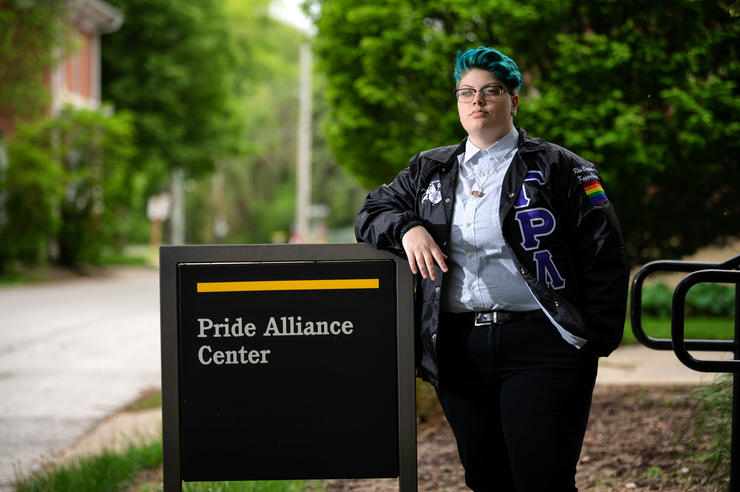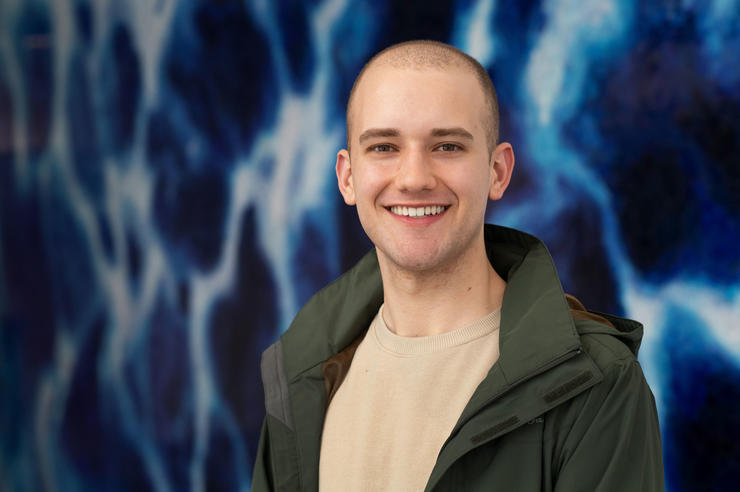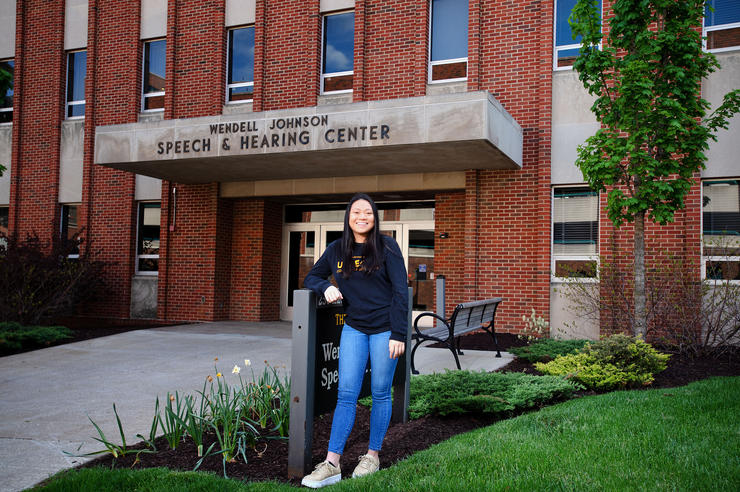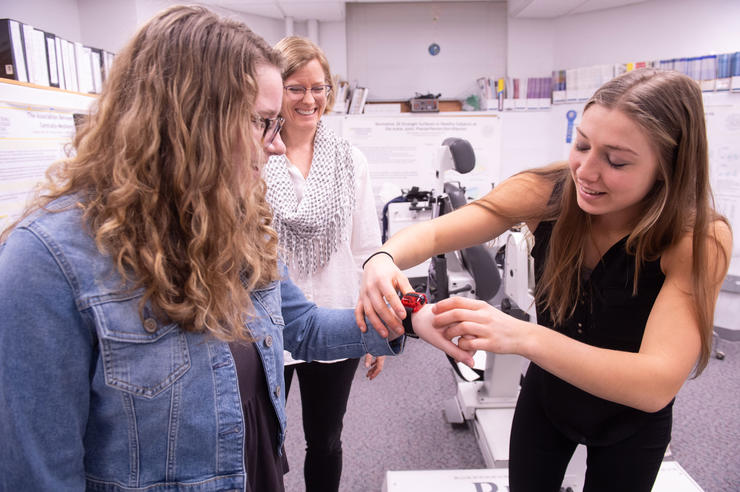Openly pursuing his cinematic dreams
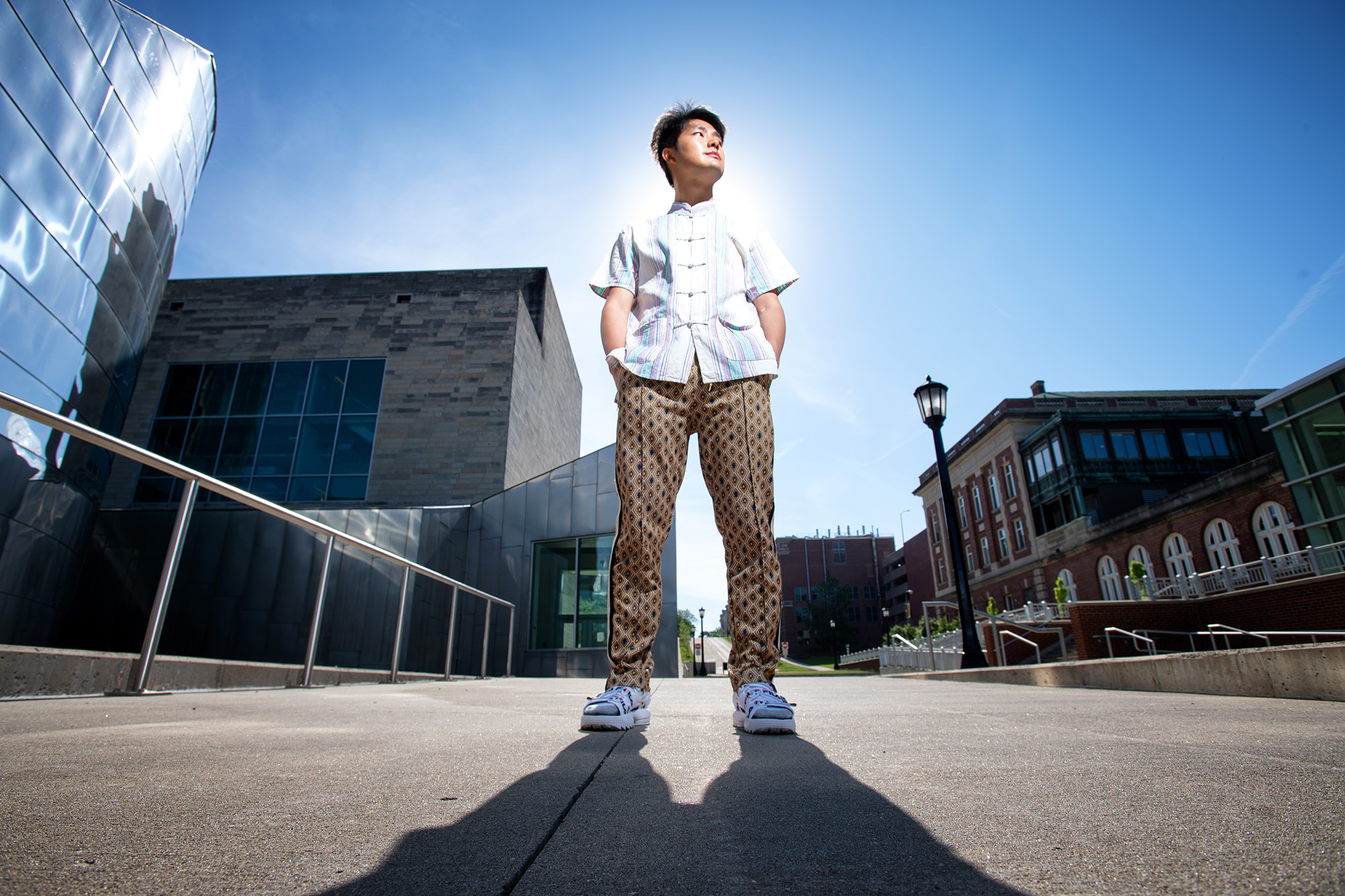

In 2021, Hao Zhou became the University of Iowa’s first recipient of a Student Academy Award. Zhou received the Gold Medal award in the category of Alternative/Experimental (Domestic and International Film Schools) for his film Frozen Out.
“The Student Academy Awards are the most significant and iconic film award for students, so I feel grateful and seen,” Zhou said during the awards ceremony, which is available for viewing on the Academy of Motion Picture Arts and Sciences website.
As an undergraduate student in China, Hao Zhou had to hide the subject matter of his film project. Making a movie about queer people put him at risk.
Today, as a graduate student at the University of Iowa, the filmmaker—who has already had successes on the international stage and in 2021 became the University of Iowa’s first recipient of a Student Academy Award—is not only living his life and following his artistic passion openly, but received UI awards that support him in doing so. He’s now working to tell the stories of fellow Chinese LGBTQ+ students living in the U.S.
Zhou, a student in the Master of Fine Arts program in film and video production, grew up in the Nanchuan District, China, with limited access to films and never having seen a movie in a cinema until he was 20 years old. Raised in a farming family by parents who had little formal education, Zhou, now 29, was the first in his family to go to college, earning a degree in radio and TV production in 2015. He came to the University of Iowa on an Iowa Arts Fellowship, which is designed to recruit talented artists and provides a funded year of study to produce scholarly or creative work.
“The only reason I’m here today is because of generous support from institutions, but the most important one to me is the Iowa Arts Fellowship,” he says. “Without it, I’d have had little chance of moving upward in my research or study. I got admitted into other elite programs in the U.S., including some Ivy League programs, but they didn’t offer me the kind of support I received here. I’m very grateful the University of Iowa offered me an Iowa Arts Fellowship to enable me to study here.”
Before coming to Iowa, Zhou’s work was recognized by several film festivals, helping him gain admission to the Cannes International Film Festival’s five-month residency program in Paris to develop his screenplay. He then received funding from a French production company for a half-year study of French language at the Sorbonne in Paris. He was named a finalist for the Tribeca Film Institute’s 2020 short documentary program for his project focusing on LGBTQ+ Chinese international students at universities across the U.S. Midwest.
Zhou’s primary focus is a queer-themed feature film, which he shot in China on his undergraduate campus when he was finishing college. He is using the time at Iowa to edit and mix the film, which has the working title Bridled, to bring it to completion.
“The fellowship basically gives me protected time and resources to allow me to finally do the post-production work,” Zhou says. “It’s been great. It feels amazingly generous.”
The Iowa Arts Fellowship is designed to help recruit talented artists to MFA programs at the University of Iowa by providing MFA students with a first-year fellowship, during which they focus on completing their scholarly activities and creative works. The award includes a $20,000 academic year fellowship stipend, plus full tuition and 50% of fees.
His goal is to submit the project to film festivals around the world, and he is particularly hopeful to find queer film festivals.
“I want audiences outside China to be able to see films made by Chinese filmmakers about the queer experience, because they are often not being told,” he says. “My strategy is to turn all my assignments, projects, and grant applications into opportunities for doing LGBTQ-themed work, in an environment that nurtures and funds LGBTQ projects.”
His acceptance into the Cannes residency was based on the works he made during his undergraduate years—but those were “totally independent work,” not projects supported by his university or under the guidance of any faculty mentorship.
“Many of my professors thought I was shameful, due to their conservative views about LGBT people and other themes I focused on,” says Zhou. “The only good thing about my undergraduate years was that I was able to meet classmates who have the same passion about filmmaking. And some of them could afford a digital camera that they let me use to shoot an indie project.”
With their help, Zhou began to make short films, and by the end of his third year, had completed his first feature film—which he submitted to the Berlin International Film Festival and was selected.
Zhou shot the film on his undergraduate university’s campus, with five friends serving as actors and seven crew members using time outside class. But doing so required that they be discreet about the film’s subject matter, which was a queer sex worker and queer relationships.
“We had to tell everyone we were just doing an assignment, because we could have been punished if they knew what it was about,” he says.
In fact, when Zhou was selected to earn a top student prize, he later learned from a professor who told him personally that he’d been disqualified due to suspicions about the theme of his work.
“This is a supportive environment. The departments also have many openly queer faculty, so I knew my identity would never be a problem here and in fact would be supported.”
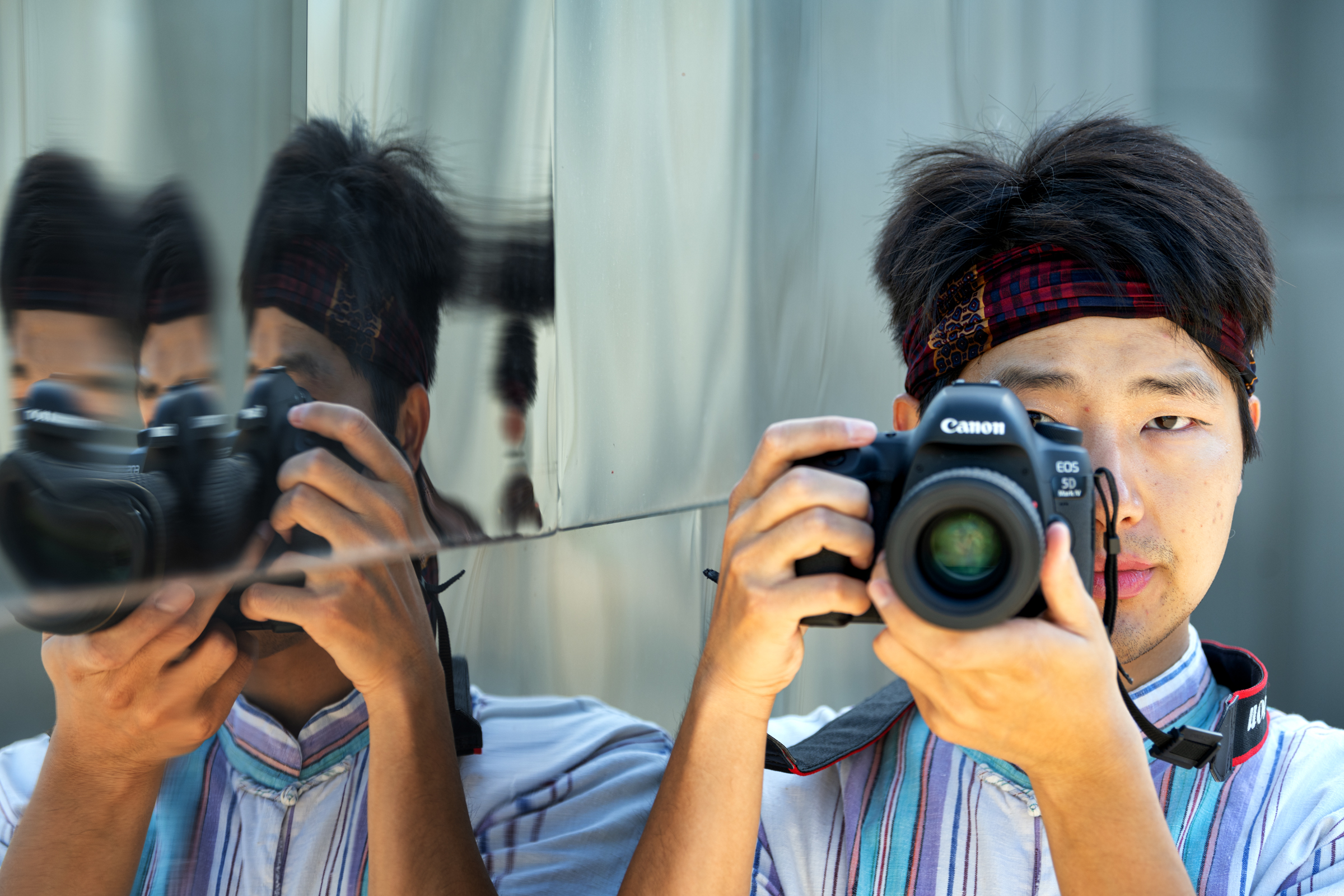
At Iowa, Zhou received a 2020 Student Impact Grant from the UI Office of the President and the Student Advancement Network to work on a photography project on LGBTQ+ Iowans. He is also producing Comrades in the Midwest, a short work for which he was named a finalist in the Tribeca Film Institute’s short documentary program. That work focuses on LGBTQ+ international students living in the Midwest, including some UI students. The film includes interviews about their perspective and shows what their daily lives look like.
“Overall, the participants in the film discuss their LGBTQ+ experiences in China and here in the Midwest, and how they desire to live more fulfilling and honest lives,” he says. “Most of them are supported in their identities here.”
Despite his restricted access to films while growing up, Zhou fell in love with the power of film in high school, when he found ways through friends to sneak films online.
“So far, LGBTQ+ films from China have generally been made in an ‘underground’ way: small-scale productions by indie filmmakers with self-funding or private investments, rather than big domestic studios making LGBTQ-centered films for the mass audience,” he says.
Seeing works like Hong Kong director Wong Kar-wai’s Happy Together and Spanish filmmaker Pedro Almodóvar’s All About My Mother opened a new world.
“The films centered on LGBTQ+ people were very fresh and new to me because they were not like TV shows, which always make fun of LGBT people,” he says. “I saw that the characters were not portrayed as bad people. And they are the main people, not the side characters.”
At the University of Iowa, he sees the fact that he received a Student Impact Grant for his work as one of many signs of support. In particular, Zhou says professors Anahita Ghazvinizadeh and Rachel Cox, as well as staff from Pride House, have always been supportive of his goals and projects.
The vision of the Pride Alliance Center (Pride House) is to support student success and holistic wellness by providing a nurturing and affirming space for Iowa’s LGBTQ students. The Pride House is a space for students to authentically exist and engage with their peers and UI community. “I really love the resources here like the Pride Alliance Center,” says MFA candidate Hao Zhou. “The fact that universities in the U.S. have LGBTQ+-related resource centers is completely new to me—there are none at universities in China. This is a supportive environment.”
“I really love the resources here like the Pride Alliance Center,” he says. “The fact that universities in the U.S. have LGBTQ+-related resource centers was completely new to me. The departments also have many openly queer faculty, so I knew my identity would never be a problem here and in fact would be supported. That’s very nice.”
“In the short time I’ve known Hao, I’ve been blown away by how his mind works,” says Emma Welch, Pride Alliance Center coordinator. “From his creativity to his dedication to sharing LGBTQ+ stories and speaking out for social justice, he is an incredible person. Conversations with Hao always expand my mind to creatively and critically think about how we not only support but celebrate the LGBTQ+ community. I look forward to continuing to be in community with Hao, and seeing where his brilliant mind takes him—I know it’ll be far.”
Once he has earned an MFA, Zhou hopes to teach at a university or art institute in the U.S., Canada, or Europe, where he will be allowed to continue LGBTQ+ projects.
“Making films is a way to wake people up,” he says. “Film is powerful because it can allow for stories that can’t be told otherwise, and social change often comes from the bottom up, especially in LGBTQ+ issues. Telling our stories alongside the dominant mainstream is a helpful step toward making progress for our communities. It’s a way to reach a mass audience to try to help people understand LGBTQ+ people and LGBTQ+ life—and these are people and groups who need support.”
